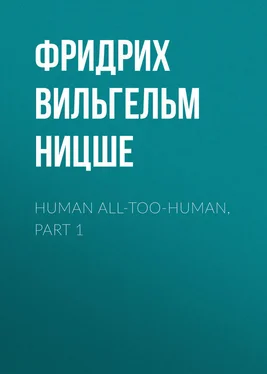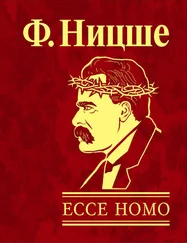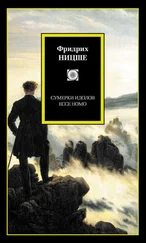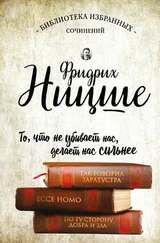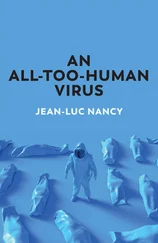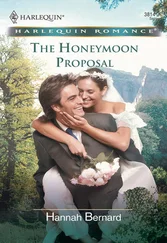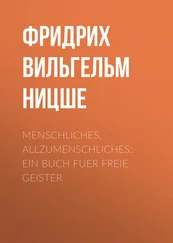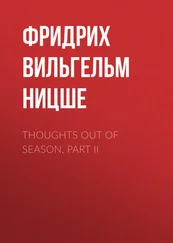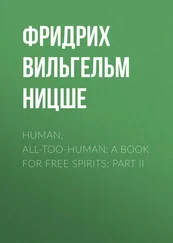Фридрих Ницше - Human All-Too-Human, Part 1
Здесь есть возможность читать онлайн «Фридрих Ницше - Human All-Too-Human, Part 1» — ознакомительный отрывок электронной книги совершенно бесплатно, а после прочтения отрывка купить полную версию. В некоторых случаях можно слушать аудио, скачать через торрент в формате fb2 и присутствует краткое содержание. Жанр: Философия, literature_19, foreign_antique, foreign_prose, на английском языке. Описание произведения, (предисловие) а так же отзывы посетителей доступны на портале библиотеки ЛибКат.
- Название:Human All-Too-Human, Part 1
- Автор:
- Жанр:
- Год:неизвестен
- ISBN:нет данных
- Рейтинг книги:4 / 5. Голосов: 1
-
Избранное:Добавить в избранное
- Отзывы:
-
Ваша оценка:
- 80
- 1
- 2
- 3
- 4
- 5
Human All-Too-Human, Part 1: краткое содержание, описание и аннотация
Предлагаем к чтению аннотацию, описание, краткое содержание или предисловие (зависит от того, что написал сам автор книги «Human All-Too-Human, Part 1»). Если вы не нашли необходимую информацию о книге — напишите в комментариях, мы постараемся отыскать её.
Human All-Too-Human, Part 1 — читать онлайн ознакомительный отрывок
Ниже представлен текст книги, разбитый по страницам. Система сохранения места последней прочитанной страницы, позволяет с удобством читать онлайн бесплатно книгу «Human All-Too-Human, Part 1», без необходимости каждый раз заново искать на чём Вы остановились. Поставьте закладку, и сможете в любой момент перейти на страницу, на которой закончили чтение.
Интервал:
Закладка:
Thus then, when I found it necessary, I invented once on a time the "free spirits," to whom this discouragingly encouraging book with the title Human, all-too-Human, is dedicated. There are no such "free spirits" nor have there been such, but, as already said, I then required them for company to keep me cheerful in the midst of evils (sickness, loneliness, foreignness, — acedia, inactivity) as brave companions and ghosts with whom I could laugh and gossip when so inclined and send to the devil when they became bores, – as compensation for the lack of friends. That such free spirits will be possible some day, that our Europe will have such bold and cheerful wights amongst her sons of to-morrow and the day after to-morrow, as the shadows of a hermit's phantasmagoria — I should be the last to doubt thereof. Already I see them coming, slowly, slowly; and perhaps I am doing something to hasten their coming when I describe in advance under what auspices I see them originate, and upon what paths I see them come.
One may suppose that a spirit in which the type "free spirit" is to become fully mature and sweet, has had its decisive event in a great emancipation, and that it was all the more fettered previously and apparently bound for ever to its corner and pillar. What is it that binds most strongly? What cords are almost unrendable? In men of a lofty and select type it will be their duties; the reverence which is suitable to youth, respect and tenderness for all that is time-honoured and worthy, gratitude to the land which bore them, to the hand which led them, to the sanctuary where they learnt to adore, – their most exalted moments themselves will bind them most effectively, will lay upon them the most enduring obligations. For those who are thus bound the great emancipation comes suddenly, like an earthquake; the young soul is all at once convulsed, unloosened and extricated – it does not itself know what is happening. An impulsion and-compulsion sway and over-master it like a command; a will and a wish awaken, to go forth on their course, anywhere, at any cost; a violent, dangerous curiosity about an undiscovered world flames and flares in every sense. "Better to die than live here " – says the imperious voice and seduction, and this "here," this "at home" is all that the soul has hitherto loved! A sudden fear and suspicion of that which it loved, a flash of disdain for what was called its "duty," a rebellious, arbitrary, volcanically throbbing longing for travel, foreignness, estrangement, coldness, disenchantment, glaciation, a hatred of love, perhaps a sacrilegious clutch and look backwards, to where it hitherto adored and loved, perhaps a glow of shame at what it was just doing, and at the same time a rejoicing that it was doing it, an intoxicated, internal, exulting thrill which betrays a triumph – a triumph? Over what? Over whom? An enigmatical, questionable, doubtful triumph, but the first triumph nevertheless; – such evil and painful incidents belong to the history of the great emancipation. It is, at the same time, a disease which may destroy the man, this first outbreak of power and will to self-decision, self-valuation, this will to free will; and how much disease is manifested in the wild attempts and eccentricities by which the liberated and emancipated one now seeks to demonstrate his mastery over things! He roves about raging with unsatisfied longing; whatever he captures has to suffer for the dangerous tension of his pride; he tears to pieces whatever attracts him. With a malicious laugh he twirls round whatever he finds veiled or guarded by a sense of shame; he tries how these things look when turned upside down. It is a matter of arbitrariness with him, and pleasure in arbitrariness, if he now perhaps bestow his favour on what had hitherto a bad repute, – if he inquisitively and temptingly haunt what is specially forbidden. In the background of his activities and wanderings – for he is restless and aimless in his course as in a desert – stands the note of interrogation of an increasingly dangerous curiosity. "Cannot all valuations be reversed? And is good perhaps evil? And God only an invention and artifice of the devil? Is everything, perhaps, radically false? And if we are the deceived, are we not thereby also deceivers? Must we not also be deceivers?" – Such thoughts lead and mislead him more and more, onward and away. Solitude encircles and engirdles him, always more threatening, more throttling, more heart-oppressing, that terrible goddess and mater sæva cupidinum – but who knows nowadays what solitude is?..
From this morbid solitariness, from the desert of such years of experiment, it is still a long way to the copious, overflowing safety and soundness which does not care to dispense with disease itself as an instrument and angling-hook of knowledge; – to that mature freedom of spirit which is equally self-control and discipline of the heart, and gives access to many and opposed modes of thought; – to that inward comprehensiveness and daintiness of superabundance, which excludes any danger of the spirit's becoming enamoured and lost in its own paths, and lying intoxicated in some corner or other; to that excess of plastic, healing, formative, and restorative powers, which is exactly the sign of splendid health, that excess which gives the free spirit the dangerous prerogative of being entitled to live by experiments and offer itself to adventure; the free spirit's prerogative of mastership! Long years of convalescence may lie in between, years full of many-coloured, painfully-enchanting magical transformations, curbed and led by a tough will to health, which often dares to dress and disguise itself as actual health. There is a middle condition therein, which a man of such a fate never calls to mind later on without emotion; a pale, delicate light and a sunshine-happiness are peculiar to him, a feeling of bird-like freedom, prospect, and haughtiness, a tertium quid in which curiosity and gentle disdain are combined. A "free spirit" – this cool expression does good in every condition, it almost warms. One no longer lives, in the fetters of love and hatred, without Yea, without Nay, voluntarily near, voluntarily distant, preferring to escape, to turn aside, to flutter forth, to fly up and away; one is fastidious like every one who has once seen an immense variety beneath him, – and one has become the opposite of those who trouble themselves about things which do not concern them. In fact, it is nothing but things which now concern the free spirit, – and how many things! – which no longer trouble him!
Читать дальшеИнтервал:
Закладка:
Похожие книги на «Human All-Too-Human, Part 1»
Представляем Вашему вниманию похожие книги на «Human All-Too-Human, Part 1» списком для выбора. Мы отобрали схожую по названию и смыслу литературу в надежде предоставить читателям больше вариантов отыскать новые, интересные, ещё непрочитанные произведения.
Обсуждение, отзывы о книге «Human All-Too-Human, Part 1» и просто собственные мнения читателей. Оставьте ваши комментарии, напишите, что Вы думаете о произведении, его смысле или главных героях. Укажите что конкретно понравилось, а что нет, и почему Вы так считаете.
